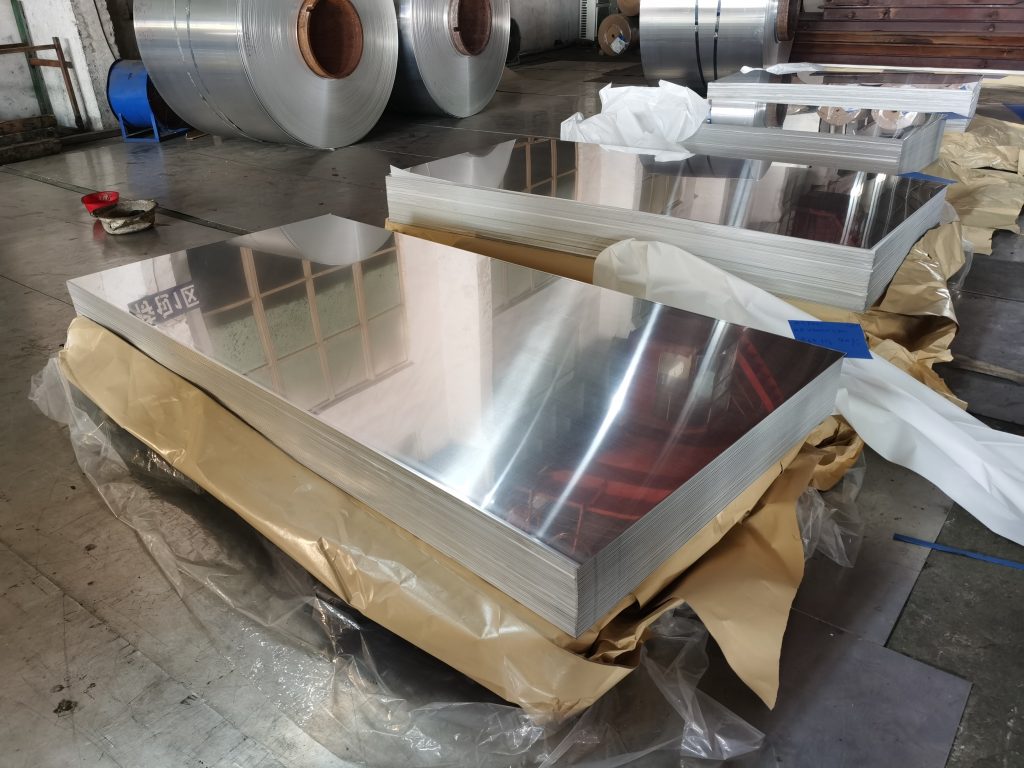1060 aluminum sheet is a common aluminum alloy material, but 1060-O and 1060-H24 represent two different states of aluminum sheets, each with differences in hardness, processing performance, and applications. Let’s delve into the main differences between them:

1060-O Aluminum Sheet
State: 1060-O aluminum sheet is in the annealed (soft) state. “O” stands for annealed (fully soft), indicating that the aluminum sheet has not undergone heat treatment.
Hardness: 1060-O aluminum sheet has lower hardness and strength, making it suitable for applications that require bending and forming, such as aluminum foil, packaging materials, and decorative items.
Processing Performance: Due to its soft state, 1060-O aluminum sheet exhibits good processing performance, making it easy to cold bend, stretch, and form. However, it has lower wear resistance and tensile strength.
1060-H24 Aluminum Sheet
State: 1060-H24 aluminum sheet is in the semi-hard state. “H24” represents the semi-hard state, indicating that the aluminum sheet has undergone cold working and partial annealing.
Hardness: Compared to 1060-O aluminum sheet, 1060-H24 aluminum sheet has higher hardness and strength, making it more suitable for applications that require higher strength and rigidity, such as automotive body panels, aerospace components, and construction materials.
Processing Performance: Due to partial annealing, the processing performance of 1060-H24 aluminum sheet is relatively poorer. However, it can still undergo certain levels of cold working and forming, suitable for applications that require a certain level of strength and hardness.
Conclusion
The main differences between 1060-O and 1060-H24 aluminum sheets lie in hardness, strength, and processing performance. Selecting the appropriate aluminum sheet depends on specific application requirements, considering factors such as desired hardness, strength, and processing capabilities. Whether it’s for flexible bending or demanding structural applications, understanding these differences helps in making informed decisions for optimal usage of aluminum sheets.